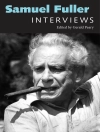Beginning with her critically acclaimed independent feature film
Eve’s Bayou (1997), writer-director Kasi Lemmons’s mission has been to push the boundaries that exist in Hollywood. With
Eve’s Bayou, her first feature film, Lemmons (b. 1961) accomplished the rare feat of creating a film that was critically successful and one of the highest-grossing independent films of the year. Moreover, the cultural impact of
Eve’s Bayou endures, and in 2018 the film was added to the Library of Congress’s National Film Registry as a culturally, historically, or aesthetically significant film. Lemmons’s directing credits also include
The Caveman’s Valentine,
Talk to Me,
Black Nativity, and, most recently,
Harriet, making Lemmons one of the most prolific and long-standing women directors in Hollywood.
As a black woman filmmaker and a self-proclaimed black feminist, Lemmons breaks the mold of what is expected of a filmmaker in Hollywood. She began her career in Hollywood as an actor, with roles in numerous television series and high-profile films, including Spike Lee’s
School Daze and Jonathan Demme’s Academy Award–winning
The Silence of the Lambs.
This volume collects fifteen interviews that illuminate Lemmons’s distinctive ability to challenge social expectations through film and actualize stories that broaden expectations of cinematic black femaleness and maleness. The interviews reveal Lemmons’s passion to create art through film, intimately linked to her mission to protest culturally and structurally imposed limitations and push the boundaries imposed by Hollywood.
Over de auteur
Christina N. Baker is associate professor of critical race and ethnic studies at University of California, Merced. She is author of Contemporary Black Women Filmmakers and the Art of Resistance, the first book-length analysis of representations of Black femaleness in the feature films of Black women filmmakers. Her work has been published in such journals as Sex Roles: A Journal of Research; Social Psychology of Education; Journal of College Student Development; the Urban Review: Issues and Ideas in Public Education; and Women, Gender, and Families of Color.












